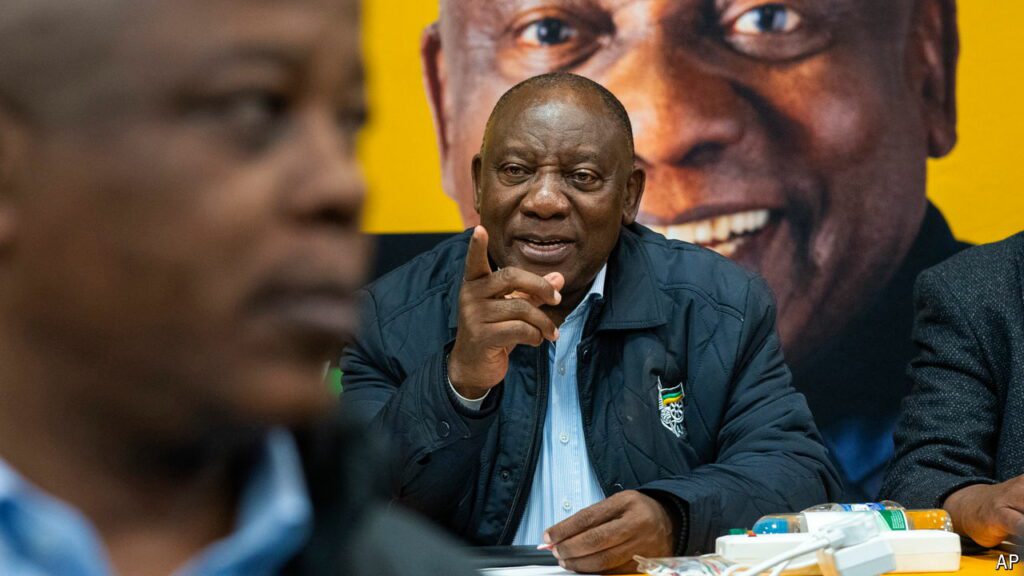DESMOND TUTU once wrote that “we in South Africa…sell ourselves short.” In a country with many problems it is easy to forget its “remarkable achievements”, argued the late Nobel peace laureate. He felt that the world had much to learn from the largely peaceful transition to democracy in 1994; the Truth and Reconciliation Commission he chaired that shed light on the darkness of apartheid; and the forgiveness of ordinary black people scarred by decades of white rule.
If Archbishop Tutu were still alive he might have added the events of June 14th to his list of feats. Members of parliament were set to re-elect Cyril Ramaphosa as South Africa’s president, with the 71-year-old now expected to form a “government of national unity”. The coalition, anchored by Mr Ramaphosa’s African National Congress (ANC) and the erstwhile official opposition, the Democratic Alliance (DA), was necessitated by the results of elections held on May 29th. The ANC won just 40.2% of the vote, depriving it of its parliamentary majority for the first time. To gain the support of most MPs Mr Ramaphosa could have joined with dangerous populist parties. Instead he and his new partners have swiftly opted for a government that adheres to the values of the 1994 settlement and has a chance of overseeing vital reforms. Its formation will reflect well on the rainbow nation’s fledgling democracy.
Source link : https://www.economist.com/middle-east-and-africa/2024/06/14/a-remarkable-new-era-begins-in-south-africa
Author :
Publish date : 2024-06-14 09:38:36
Copyright for syndicated content belongs to the linked Source.
